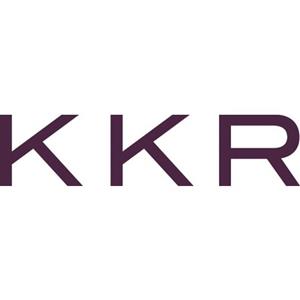KKR's Bold Move in the Japanese Tech Landscape
November 15, 2024, 5:39 pm
In the fast-paced world of finance, every decision can feel like a high-stakes poker game. Recently, KKR, a heavyweight in private equity, upped the ante in its bid for Fuji Soft, a prominent Japanese software developer. The firm raised its tender offer price to 9,451 yen per share, a significant leap from the previous 8,800 yen. This strategic maneuver has sent ripples through the market, showcasing KKR's aggressive approach to securing valuable assets.
The backdrop of this acquisition is a competitive landscape. KKR's revised offer not only surpasses its own earlier bid but also eclipses a rival proposal from Bain Capital, which had set its sights on Fuji Soft with an offer of 9,450 yen. In this game of financial chess, KKR has positioned itself as the front-runner, and Fuji Soft's board has taken notice. They convened and decided to back KKR's offer, signaling a clear preference for KKR's vision over Bain's.
This acquisition is more than just numbers on a balance sheet. It represents a strategic alignment between KKR and Fuji Soft, a company known for its innovative software solutions. The partnership could unlock new growth avenues, particularly in the burgeoning tech sector in Japan. KKR's deep pockets and expertise in scaling businesses could provide Fuji Soft with the resources it needs to expand its reach and enhance its product offerings.
The implications of this deal extend beyond the immediate financial benefits. For KKR, acquiring Fuji Soft is a chance to tap into Japan's dynamic technology market. The country is home to a wealth of talent and a growing demand for software solutions across various industries. By integrating Fuji Soft into its portfolio, KKR could leverage these advantages to drive innovation and capture market share.
Moreover, this acquisition reflects a broader trend in the private equity landscape. Firms are increasingly looking to invest in technology companies, recognizing the sector's potential for high returns. As digital transformation accelerates globally, software developers like Fuji Soft are becoming hot commodities. KKR's move is a testament to this shift, as it seeks to position itself at the forefront of the tech revolution.
The decision by Fuji Soft's board to support KKR's offer also highlights the importance of strategic partnerships in today's business environment. In a world where collaboration often trumps competition, aligning with a powerful ally can be a game-changer. KKR's resources and expertise could provide Fuji Soft with the competitive edge it needs to thrive in a crowded marketplace.
However, the road ahead is not without challenges. Bain Capital's proposal, while slightly lower, still represents a formidable challenge. The competition for acquisition targets is fierce, and KKR must ensure that its offer resonates with Fuji Soft's shareholders. The dynamics of shareholder sentiment can be unpredictable, and KKR will need to navigate these waters carefully.
Additionally, the regulatory landscape in Japan can pose hurdles for foreign investors. KKR will need to work closely with local authorities to ensure compliance and smooth integration. Understanding the cultural nuances of doing business in Japan will be crucial for KKR's success. Building trust and rapport with Fuji Soft's employees and stakeholders will be essential as the two entities move forward together.
As the dust settles on this acquisition, the focus will shift to execution. KKR's ability to integrate Fuji Soft into its existing operations will be closely watched. The success of this partnership will depend on how well KKR can harness Fuji Soft's strengths while aligning them with its strategic goals. The potential for innovation and growth is immense, but it requires careful planning and execution.
In conclusion, KKR's increased tender offer for Fuji Soft is a bold statement in the world of private equity. It reflects a keen understanding of market dynamics and a willingness to invest in the future of technology. As KKR positions itself as a leader in the Japanese tech landscape, the eyes of investors and industry watchers will be fixed on the unfolding narrative. This acquisition could very well set the stage for a new chapter in the evolution of both KKR and Fuji Soft, with the potential to reshape the software industry in Japan and beyond. The stakes are high, and the outcome remains to be seen, but one thing is clear: KKR is all in.
The backdrop of this acquisition is a competitive landscape. KKR's revised offer not only surpasses its own earlier bid but also eclipses a rival proposal from Bain Capital, which had set its sights on Fuji Soft with an offer of 9,450 yen. In this game of financial chess, KKR has positioned itself as the front-runner, and Fuji Soft's board has taken notice. They convened and decided to back KKR's offer, signaling a clear preference for KKR's vision over Bain's.
This acquisition is more than just numbers on a balance sheet. It represents a strategic alignment between KKR and Fuji Soft, a company known for its innovative software solutions. The partnership could unlock new growth avenues, particularly in the burgeoning tech sector in Japan. KKR's deep pockets and expertise in scaling businesses could provide Fuji Soft with the resources it needs to expand its reach and enhance its product offerings.
The implications of this deal extend beyond the immediate financial benefits. For KKR, acquiring Fuji Soft is a chance to tap into Japan's dynamic technology market. The country is home to a wealth of talent and a growing demand for software solutions across various industries. By integrating Fuji Soft into its portfolio, KKR could leverage these advantages to drive innovation and capture market share.
Moreover, this acquisition reflects a broader trend in the private equity landscape. Firms are increasingly looking to invest in technology companies, recognizing the sector's potential for high returns. As digital transformation accelerates globally, software developers like Fuji Soft are becoming hot commodities. KKR's move is a testament to this shift, as it seeks to position itself at the forefront of the tech revolution.
The decision by Fuji Soft's board to support KKR's offer also highlights the importance of strategic partnerships in today's business environment. In a world where collaboration often trumps competition, aligning with a powerful ally can be a game-changer. KKR's resources and expertise could provide Fuji Soft with the competitive edge it needs to thrive in a crowded marketplace.
However, the road ahead is not without challenges. Bain Capital's proposal, while slightly lower, still represents a formidable challenge. The competition for acquisition targets is fierce, and KKR must ensure that its offer resonates with Fuji Soft's shareholders. The dynamics of shareholder sentiment can be unpredictable, and KKR will need to navigate these waters carefully.
Additionally, the regulatory landscape in Japan can pose hurdles for foreign investors. KKR will need to work closely with local authorities to ensure compliance and smooth integration. Understanding the cultural nuances of doing business in Japan will be crucial for KKR's success. Building trust and rapport with Fuji Soft's employees and stakeholders will be essential as the two entities move forward together.
As the dust settles on this acquisition, the focus will shift to execution. KKR's ability to integrate Fuji Soft into its existing operations will be closely watched. The success of this partnership will depend on how well KKR can harness Fuji Soft's strengths while aligning them with its strategic goals. The potential for innovation and growth is immense, but it requires careful planning and execution.
In conclusion, KKR's increased tender offer for Fuji Soft is a bold statement in the world of private equity. It reflects a keen understanding of market dynamics and a willingness to invest in the future of technology. As KKR positions itself as a leader in the Japanese tech landscape, the eyes of investors and industry watchers will be fixed on the unfolding narrative. This acquisition could very well set the stage for a new chapter in the evolution of both KKR and Fuji Soft, with the potential to reshape the software industry in Japan and beyond. The stakes are high, and the outcome remains to be seen, but one thing is clear: KKR is all in.

